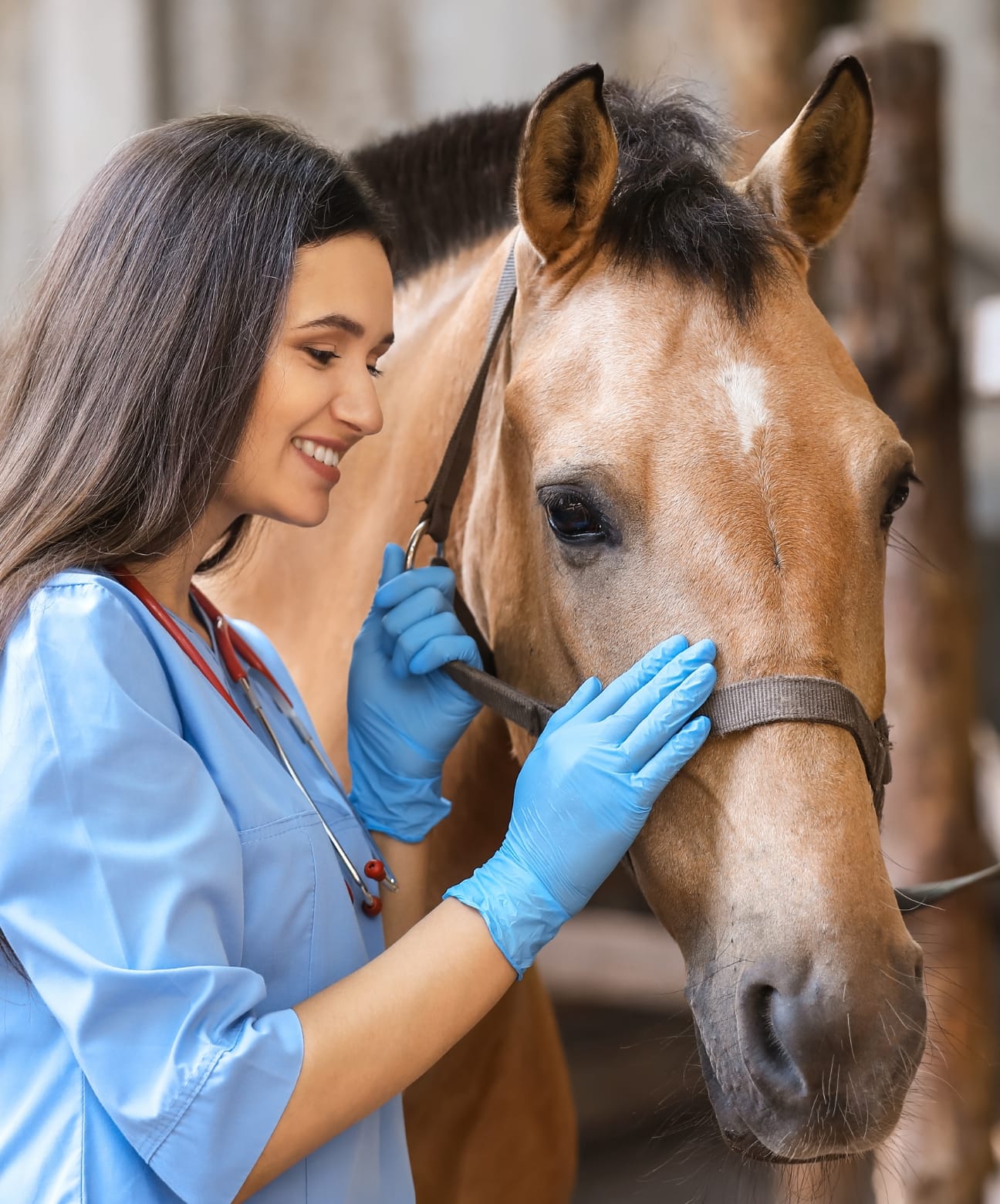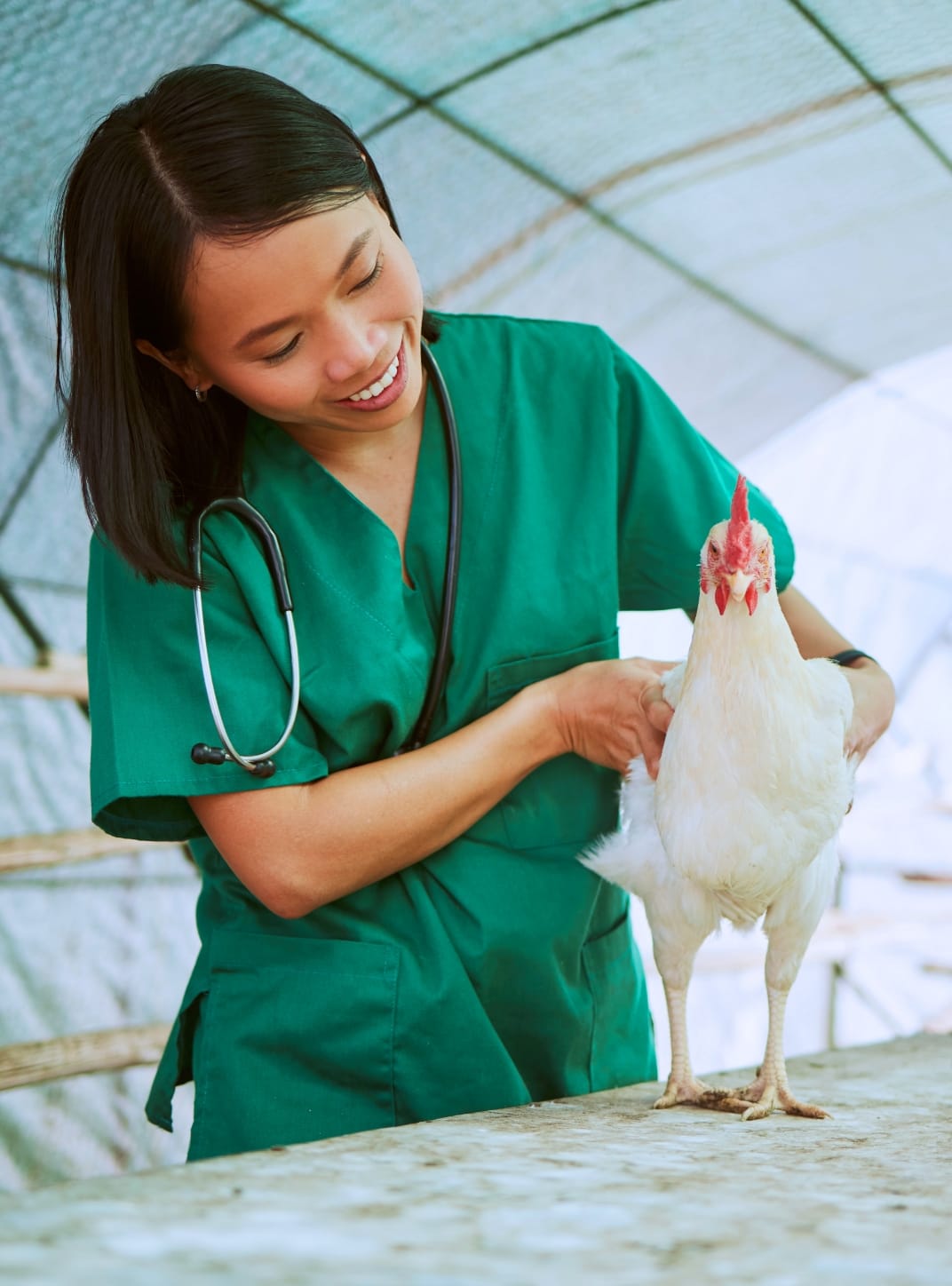
Become a Specialist
Getting Certified
Our Diplomates are among the most ambitious, forward-thinking professionals in veterinary care, driven by a commitment to the well-being of animals and those who care for them. ABVP Diplomate veterinarians work in a variety of settings, including private practice, veterinary schools, and industry.

The ABVP is an AVMA-recognized veterinary specialty organization™ for certification of its 12 recognized veterinary specialties.
A STEP ABOVE
ABVP Certification Sets You Apart
The ABVP certifies veterinary practitioners with exceptional knowledge, skill, and competency in the care of the total patient, and are certified in clinical practice for the species in which certification is granted. Clinical practice, as it pertains to veterinarians, is the art and science of applying medical knowledge to animals for their care and the alleviation and prevention of their diseases. Most veterinarians performing broad-based clinical practice are not board-certified.
The ABVP board-certified veterinarian has demonstrated they are capable of providing a level of clinical practice that is clearly superior to the norm of the profession.
The ABVP undergoes a comprehensive evaluation by the American Board of Veterinary Specialties (ABVS), a committee of the American Veterinary Medical Association, every three years to ensure that we are maintaining the required standards for our certification process.
Follow the right route FOR YOU
Ways to Become an ABVP Specialist
Private Practitioner Route
ABVP has practitioner in its name. Veterinarians in clinical practice who demonstrate exceptional patient care and abilities may apply after a minimum of 4 years in practice. The application process will require the practitioner to show evidence of advanced skills and knowledge of the desired RVS category.
Hybrid Route
All veterinarians interested in attaining Diplomate status with the ABVP are encouraged to first download and read the Applicant Handbook. The Applicant Handbook provides answers to all commonly asked questions and systematically guides you through the application and credentials process. Once you are ready to apply, you will need to create an online account. All applications, fees, and credentials are submitted via your account.
ABVP Residency Route
The ABVP offers over 50 different ABVP-approved residency programs in the United States and abroad for those interested in pursuing the residency pathway to certification. ABVP’s residency programs are not listed in the match program unless the institution or clinic chooses to do so on its own. If you are interested in any of our listed programs, please contact the program directly for details on the application as each program is different.
An ABVP residency meets one requirement for admission after completion of an internship or at least one year of practice in the specialty area and devoting a minimum of two years of specialty training in an ABVP-approved residency program in the RVS.
The ABVP Residency Handbook has instruction and guidance for clinical practice disciplines in the species-related areas.
Resources
Documents & Fees
Credentials Documents & Fees
Fees
Application Fee: $590
Re-Application Fee (2nd or 3rd attempt): $440
Examination Fee: $680
Re-Examination Fee (2nd or 3rd attempt): $680
Rates current as of July 2024
Documents
Resident Documents & Fees
Fees
Annual Resident Fee: $100
Rates current as of July 2024
Documents
Specialties
Recognized Practices
Each Recognized Veterinary Specialty (RVS) includes veterinarians who are exceptional leaders in their fields. ABVP’s 12 Recognized Veterinary Specialties are:
Residency Locations
Applications
Timeline for Applications
Applications are due Jan 15 annually. Applicants are notified by mid-May if the application was accepted and they are then eligible to take the exam. The examination is on the first Saturday of November annually.











